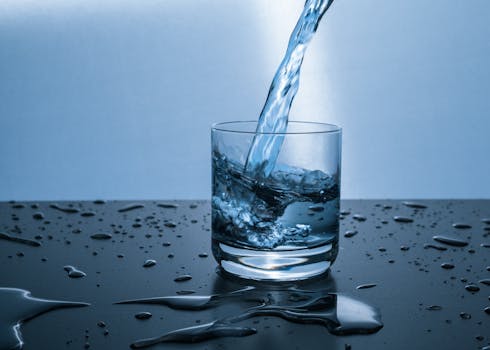Preventing Kidney Disease Through Adequate Hydration and an Active Lifestyle
Kidney disease is a growing health concern worldwide, affecting millions of individuals and leading to severe complications, including kidney failure. However, research indicates that simple lifestyle changes, particularly adequate hydration and regular physical activity, can significantly reduce the risk of developing kidney disease. This article explores the importance of these two factors and provides actionable insights for maintaining kidney health.
The Role of Hydration in Kidney Health
Water is essential for life, and its role in kidney function cannot be overstated. The kidneys are responsible for filtering waste products from the blood, regulating electrolyte balance, and maintaining fluid homeostasis. Adequate hydration supports these functions in several ways:
- Waste Removal: Sufficient water intake helps the kidneys efficiently remove toxins and waste products from the bloodstream.
- Prevention of Kidney Stones: Staying hydrated dilutes the substances in urine that can lead to stone formation, significantly reducing the risk of kidney stones.
- Regulation of Blood Pressure: Proper hydration helps maintain blood volume and pressure, which is crucial for kidney health.
According to the National Kidney Foundation, drinking enough water can help prevent chronic kidney disease (CKD). A study published in the American Journal of Kidney Diseases found that individuals who consumed more than 2.5 liters of water daily had a lower risk of developing CKD compared to those who drank less than 1.5 liters.
How Much Water Do You Need?
The amount of water an individual needs can vary based on several factors, including age, sex, activity level, and climate. However, a general guideline is:
- Men: Approximately 3.7 liters (or about 13 cups) of total water per day.
- Women: Approximately 2.7 liters (or about 9 cups) of total water per day.
It’s important to note that these recommendations include all fluids consumed, not just water. Foods with high water content, such as fruits and vegetables, also contribute to hydration.
The Impact of an Active Lifestyle
In addition to hydration, maintaining an active lifestyle is crucial for kidney health. Regular physical activity has numerous benefits that can help prevent kidney disease:
- Weight Management: Exercise helps maintain a healthy weight, reducing the risk of obesity-related kidney disease.
- Improved Blood Sugar Control: Physical activity enhances insulin sensitivity, which is vital for preventing diabetes—a major risk factor for kidney disease.
- Lower Blood Pressure: Regular exercise can help lower blood pressure, reducing strain on the kidneys.
A study published in the Journal of the American Society of Nephrology found that individuals who engaged in regular physical activity had a 30-40% lower risk of developing CKD compared to sedentary individuals. This highlights the importance of incorporating exercise into daily routines.
Practical Tips for Staying Hydrated and Active
To effectively prevent kidney disease, consider the following practical tips:
- Set a Daily Water Goal: Aim to drink a specific amount of water each day and track your intake.
- Incorporate Hydrating Foods: Include fruits and vegetables like cucumbers, watermelon, and oranges in your diet.
- Establish a Routine: Schedule regular exercise sessions, aiming for at least 150 minutes of moderate-intensity activity each week.
- Listen to Your Body: Pay attention to thirst cues and adjust your fluid intake based on activity level and climate.
Conclusion
Preventing kidney disease is a multifaceted approach that emphasizes the importance of adequate hydration and an active lifestyle. By ensuring proper fluid intake and engaging in regular physical activity, individuals can significantly reduce their risk of developing kidney-related issues. As research continues to highlight the connection between lifestyle choices and kidney health, it becomes increasingly clear that small changes can lead to substantial benefits. Prioritizing hydration and exercise not only supports kidney function but also enhances overall well-being, making it a vital aspect of a healthy lifestyle.
